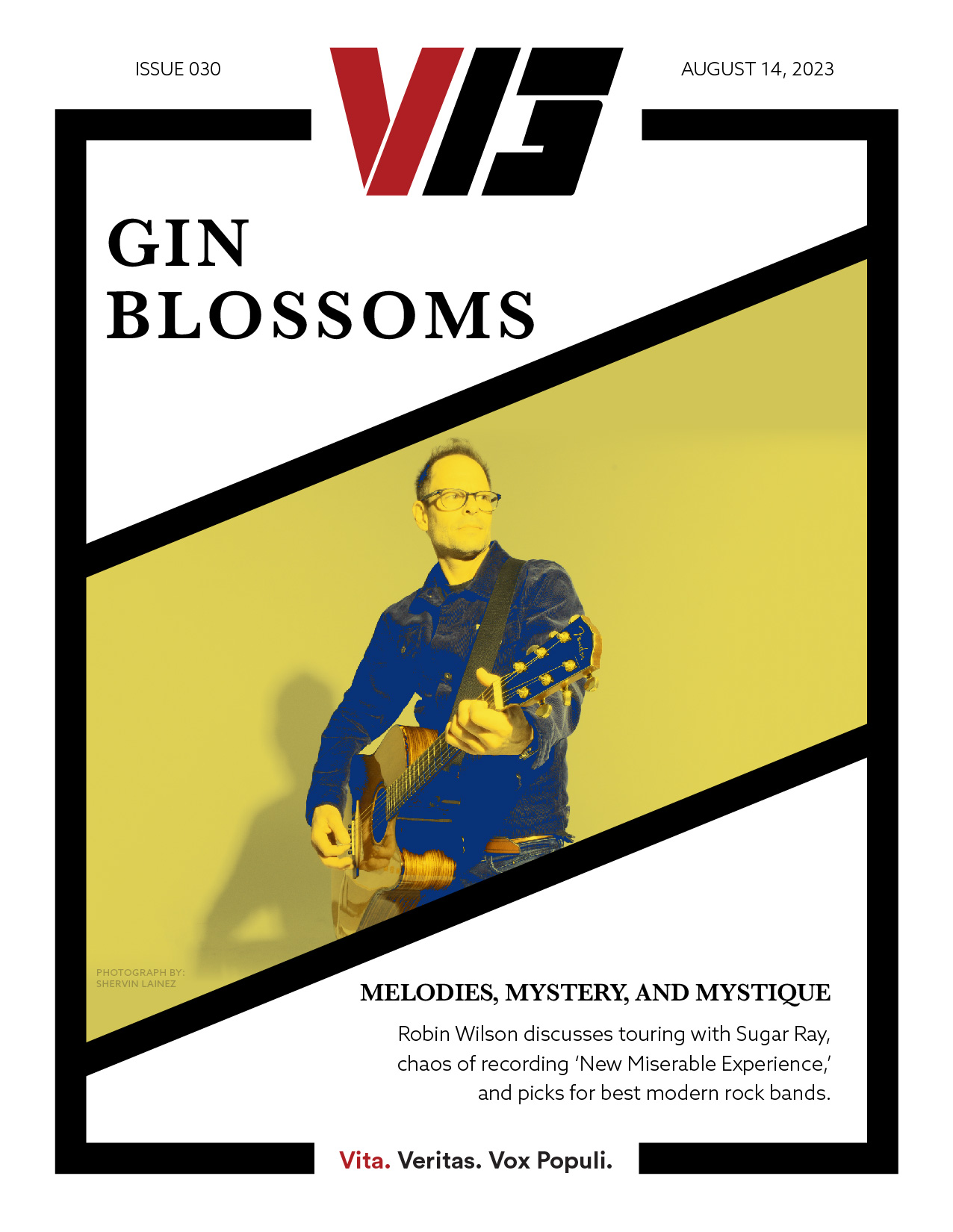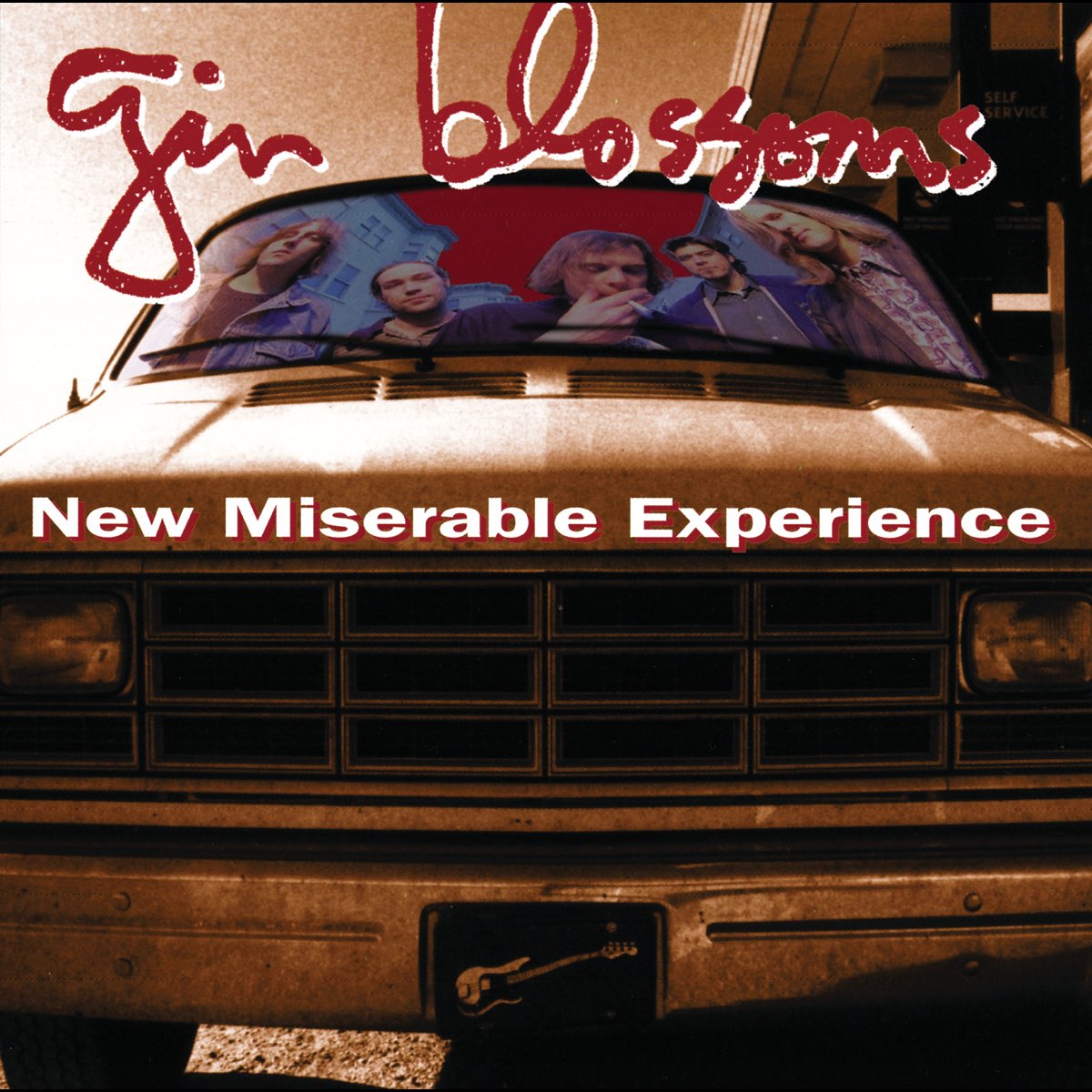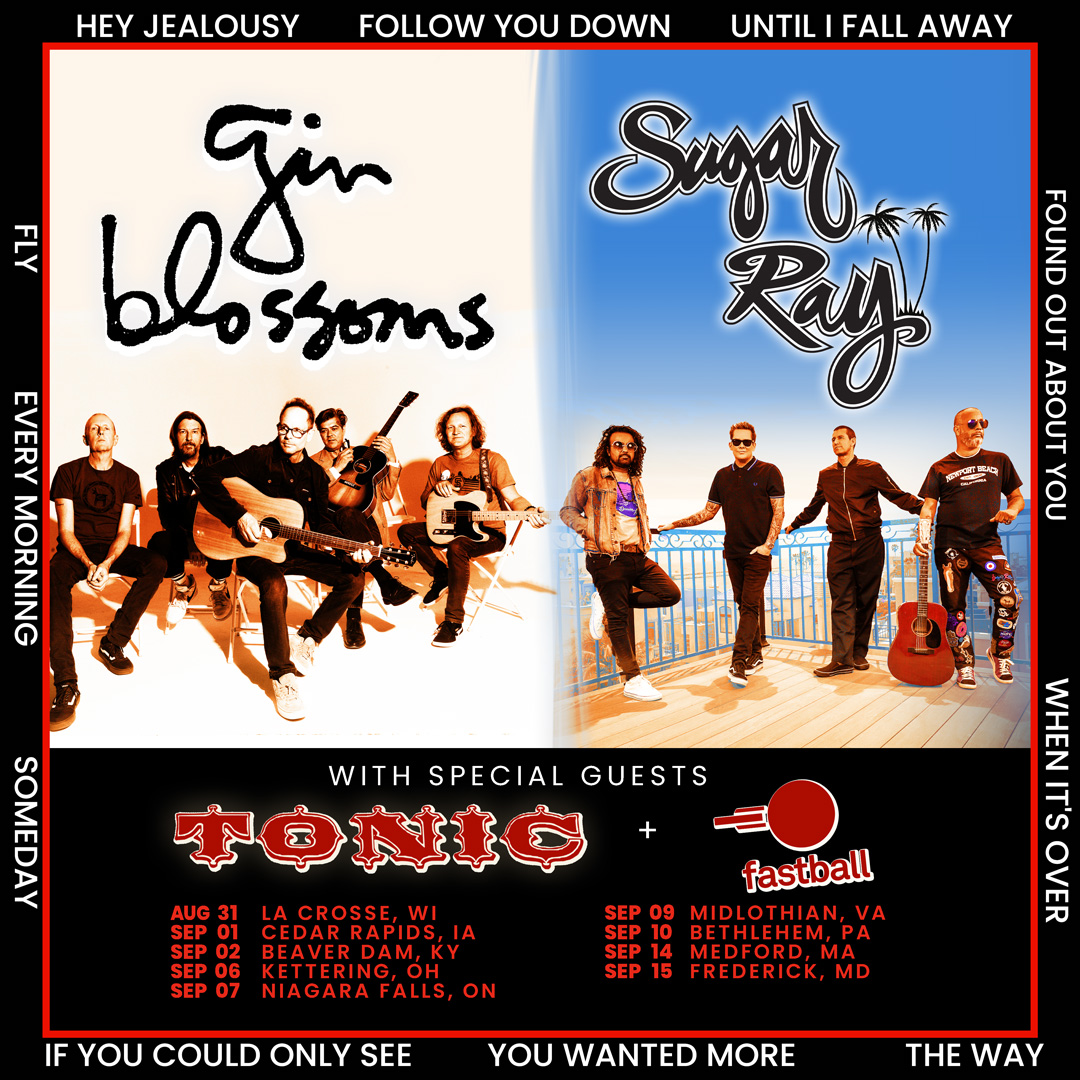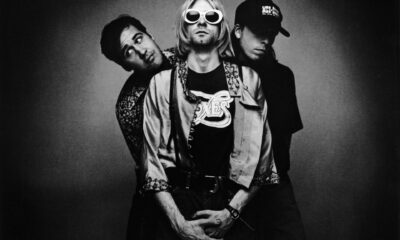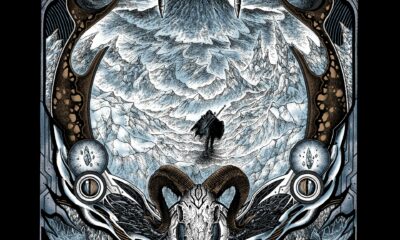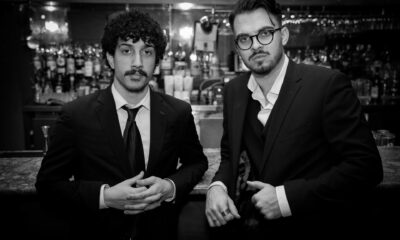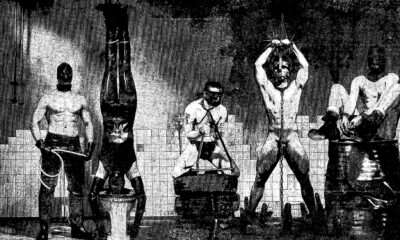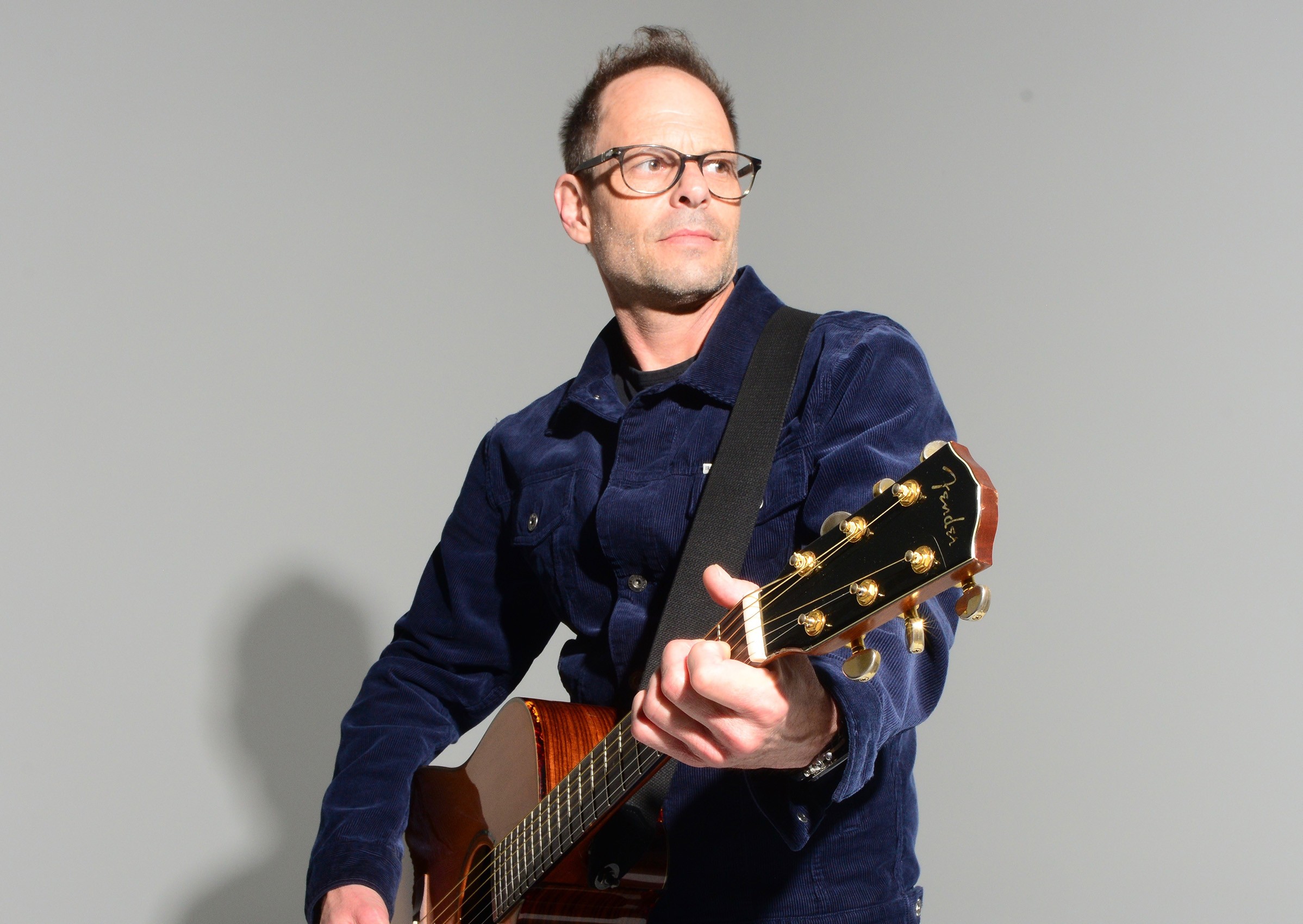

Alternative/Rock
Gin Blossoms: “I’m at a point now where I just want to share the perspective of what really fucking happened.”
In our latest Cover Story, Gin Blossoms’ Robin Wilson opens up about touring with Sugar Ray, the band’s inner dynamics, challenging experiences, and chaos of recording ‘New Miserable Experience.’
The Gin Blossoms manoeuvred through the 90’s music scene with a nuanced touch, occupying a distinctive space that distinguished them from their contemporaries. While they sidestepped the heavy gravitational pull of grunge and bypassed the confrontations within the nascent world of hip-hop, they also avoided the veneer of artifice and superficiality often associated with pop acts of that era. Instead, Gin Blossoms served up an unpretentious and accessible version of rock, securing a role in the broader context of ’90s music and culture.
Despite not being the flashiest or most audacious band in the crowd, the Gin Blossoms provided a haven for listeners yearning for music that echoed a more grounded, relatable narrative. They quietly etched out their own space, representing the more thoughtful, less boisterous facet of the ’90s alternative rock scene. Their hits like “Hey Jealousy” and “Til I Hear It From You” might not have made a loud, sudden impact, but they gradually permeated the cultural fabric of the time, leaving a subtle yet enduring imprint that is still felt today.
Their cultural penetration wasn’t limited to the airwaves; it extended to the silver screen as well. Their songs soundtracked memorable moments in a host of ’90s films, including Speed, Wayne’s World 2, and Empire Records, cementing them in the era’s cultural memory. It’s this pervasive presence that hints at their lasting influence, underlining their unique contribution to the music scene of the 90s.
In a world where so many rock stars revelled in excess, Gin Blossoms were always more subtle, more understated, in both their music and their image. They weren’t about the spectacle; they were about the song, the melody, and the lyrics that touched listeners without the need for malice or marketing. It made them a staple of the ’90s alternative scene, influencing many bands that followed.
But despite their unassuming image, Gin Blossoms were not immune to internal strife. During the recording of their seminal album, New Miserable Experience, the band faced a turmoil that echoed the bitterness lurking just underneath the surface. The struggles within the group often echoed the struggles they sang about – tales of emotional turbulence and quiet resilience, juxtaposed with catchy melodies and unforgettable hooks as they were.
New Miserable Experience, despite its ultimate commercial success, was born from those struggles. It was an album conceived in the crucible of interpersonal conflict and emotional tension, offering an even more authentic resonance with fans who could feel the genuine sorrow and frustration seeping through their music. The fact that they managed to channel these experiences into a powerful artistic expression speaks volumes about the depth and resilience of the band.
The discord within the group, primarily stemming from the substance abuse and erratic behaviour of band member Doug Hopkins, and his subsequent tragic departure and suicide, added a layer of tragic poignancy to their music. Despite, or perhaps because of, their internal turmoil, the Gin Blossoms’ legacy is one of making deeply affecting music that reflected both their personal struggles and the broader anxieties of the time.
In many ways, the Gin Blossoms were a mirror of their audience’s own experiences – navigating personal and societal upheaval, seeking solace in shared stories and melodies, and emerging from hardship with a sense of hope and resolve. Their ability to channel adversity into music that remains relevant to this day is a testament to their authenticity and emotional insight.
That said, it’s important to remember that the band’s public image – that of a rock-solid, down-to-earth, relatable group – belied a turbulent reality. Just like the listeners who sought comfort and understanding in their music, the Gin Blossoms grappled with their own demons, giving their music a depth of emotion that continues to resonate.
For a candid look into the lesser-known history of Gin Blossoms, check out our complete interview with Robin Wilson. In this conversation, Wilson opens up about the band’s inner dynamics, their challenging experiences, and the timeless appeal of their music. Whether you’re a fan, a music enthusiast, or just curious about the realities behind the rock ‘n’ roll facade, you’re sure to find this chat worth your while. You can watch, listen, or read it all below.
Robin Wilson is the esteemed lead vocalist of alternative rock band Gin Blossoms. As the voice behind iconic songs like “Hey Jealousy” and “Til I Hear It From You,” he’s left an indelible mark on the alternative rock genre. Today, we have the privilege of diving deeper into Robin’s musical journey, discussing discography, time on the road, and upcoming tour with Sugar Ray that kicks off on August 31st. Thanks for speaking with us, Robin.
Robin Wilson: “It’s my pleasure, Lance. How are you doing today?”
Doing well. Not every day get to speak with someone who formed up a good portion of my soundtrack in a certain part of my life. So, it’s really exciting to speak with you.
“Oh, that’s cool. Well, I appreciate that you referred to me as esteemed. I don’t hear that word very often. So… it’s very flattering and somewhat confusing. But I’ll go with it.”
Well, let’s jump right into it: This isn’t the first time you guys have toured with Sugar Ray, is it? You guys did the Summerland tour.
“No, no. Yeah, back in… We’ve toured with them a, yeah, a few times. And then we’ve done, you know… One off gigs or weekends with them several times. So I’ll just, I’ll just cut right to the chase: Sugar Ray is my all time favourite band to tour with.”
Oh, wow. The first one, I believe, was the Summerland tour in 2012? Is that right?
“That was the first full length tour. We had done a few shows with them here and there. But that was the first full length tour.”
Do you have any fond memories from that particular tour?
“The entire thing is a fond memory.”
Fair enough. And speaking of tours, you guys were all set to celebrate the 30th anniversary of New Miserable Experience last year, but that was cut short in March, I believe it was, when Bill Leen broke his arm. Is that right?
“That is correct, and then we made up all those dates, we rescheduled them and did ’em all in the fall.”
“I had a cassette that had like seven tunes on it. Some of them were pretty good. And one of them was ‘Until I Fall Away.”
Looking back though on the anniversary of that album how would you describe the creative process that went behind that album and its impact on your career?
“I would describe it as inspired chaos. You know, I mean, most of the songs were put together when we were just a bar band looking for a deal, and there was a lot going on in those days, we were dealing with a lot of pressures from within and without, and as a songwriter, I was, I was competing with Jesse [Valenzuela] and Doug [Hopkins].
“You know, dealing with all the roadblocks of Doug’s personal complications. So, you know, it was, it was an exciting time, but it was, it was also very frustrating. And as an example, I remember that I had written several songs, but I couldn’t get Doug to rehearse for… like half a year before we went to make New Miserable Experience. I just could not get him to rehearse.
“He once made up a story that he got a girl pregnant just so I would feel bad enough for him, that I wouldn’t be worried about him canceling practice and… it’s just a crazy way to be, you know.
“And I remember I called Jesse and I’m like, ‘Dude, we need to rehearse before we go make this album. I’ve got all these songs I want you guys to hear,’ and Jesse basically just kind of shrugged and said, ‘I don’t think it’s gonna happen, Rob,’ and I was really pissed off. Very frustrated that I couldn’t get my bandmates to, you know, just rehearse. To hear my new material.
“So we went into those sessions and I was under the impression that I wasn’t gonna have a single song that I had written on the album. And I was really pissed off… It’s difficult for me to hide my feelings, so I was basically pouting through the first several days of recording.
“And then finally I guess our producer, John [Hampton], realised that something was amiss with the vibe in the studio and when I wasn’t there he called a meeting and kind of got to the root of the problem and I guess my bandmates must have explained, ‘Oh, Robin’s pissed off because he doesn’t have any songs on the record,’ and I don’t think they bothered to explain that, you know, they didn’t want to rehearse for eight months which put us in this position but anyway, I got called into the studio and the whole band and John were sitting there and they’re like, ‘All right, Robin, we’re going to learn one of your songs.’
“And I was like, ‘Holy shit. Now I gotta, now I gotta hope that they like something in this batch of songs that I had written.’ All right, so I had a cassette that had like seven tunes on it. Some of them were pretty good. And one of them was ‘Until I Fall Away.’
“I remember there was a moment where the band kind of all sort of shrugged and said, ‘Well, if we’re going to do one, maybe we should do that one.’ And we started learning ‘Until I Fall Away’ that night. And you know, cut to the point where the album was done. And I remember getting a phone call from our A&R guy.
And he said in reference to ‘Until I Fall Away,’ he said, ‘Robin, that’s a single. That’s a hit single.’ And I was like, ‘Wow, really?’ Like, yep. That is, that is going to be a hit. And I remember thinking at the time, ‘Wow… Doug is going to be really fucking jealous.’
“So, you know, when I describe, chaos and conflict, in reference to those sessions, that’s just a taste.
A small taste of what was going on at the time. We knew we had great material.
“We weren’t thinking in terms of, you know, compared to Smashing Pumpkins or Nirvana, that this record holds up as a milestone of our generation. We weren’t thinking like that. We were just thinking, you know, for what we can do within our own little world. We knew that it represented us really well.
And by the time the sessions ended and we basically had to fire Doug because he completely melted down while we were making the record, we went home from Memphis and we didn’t know if anybody was ever going to hear it. We thought we were going to get dropped.
“We thought that the album would never be released. We knew the band was on the verge of breaking up and ending for good. And… it was a, it was a terrifying time and I remember playing the, some rough mixes for, I went up to Portland, Oregon and I was hanging around this bar and I ended up like putting on the rough mixes in this bar.
“I was talking to the bartender and explaining, you know, I just made this album and I put it on and I remember playing ‘Found Out About You’ for him and him like looking at me like, ‘Well, this is actually really fucking good.’ And I remember thinking, ‘You might be the only person that ever hears it,’ you know?
I’ve wondered from time to time if that dude, I don’t remember who it was, wasn’t anybody I knew very well. But I wonder if he realised when it became, you know, like a, a top 10 single that, he was maybe the first person in America to hear it. Outside of the band and the people that worked at the studio and the label.
“Complicated times. Heartbreaking, heartbreaking times.”
And that’s something that’s always struck me about yourselves is that, you know, from the start, Gin Blossoms have been this band that has jangle and pop sensibilities, but then I hear the lyrics much later on, and I look at this as a bittersweetness, right? I can’t help but think that that’s why so many fans have connected deeply with your lyrics. I feel as though that kind of represented the 90s in general.
“Sure, well we were a product of our times, you know, we were swimming in the wake of our favourite bands, you know, Let’s say groups like R.E.M. and The Replacements, you know, were among the touchstones that we sought to emulate. So we were, we were a product of those times but we also had a lot of classic rock sensibilities. Doug’s biggest hero as a guitar player and songwriter was probably Pete Townshend. Certainly we were all into The Beatles.
“We didn’t know if anybody was ever going to hear it. We thought we were going to get dropped. We thought that the album would never be released.”
“And then we had a very strong New Wave influence. Bands like The Cars or The Church had a big impact on us.
“I’ve noticed that music tends to sort of reinvent itself like every seven years. The kids that are in high school, they’re listening to what’s on the radio and then when they’re 22 years old or 23 years old they’re starting bands, you know, so things tend to cycle in popular music like every seven years or so.”
I think there’s something to that to be fair.
“We were right there on the on the cusp of everything that was happening And we like so many other bands from from our era like Nirvana, Goo Goo Dolls, Smashing Pumpkins, Soundgarden. We were all forming our band in the late 80s and signing deals around that time, and then finally getting our our recordings done in the early 90s.
Is there any specific song in your discog that still holds, or has emerged to become as bittersweet as that theme? Is there any specific one that you know is gonna, that you know carries a lot more weight to it?
“Yeah, I’d say “Hold Me Down.” You know, it’s a song that Doug and I wrote together.
“And, it’s a song that meant a lot to me because we were… we were working together on that, and I, wanted it to be like the first single and then…
“There was a moment in the studio where Doug was, he was so totally falling apart, and just so angry and bitter, he basically told me that he was gonna rewrite all of my lyrics to that song because he didn’t want to share co-writing credit with me.
“You know, and it’s just such a… Just such a hurtful, painful moment, you know, and then to survive it… That, that song means so much to me, when I hear it, or when we play it. Doug and I had co written a few things together, but that’s the only song we wrote together that actually made it onto a record.
“And for it to be a part of New Miserable Experience means the world to me. It’s the only proof that I have that Doug and I wrote a song together, you know. I, I… So yeah, ‘Hold Me Down.’ That’s the one. That’s…
“It’s just so bittersweet, you know. I’m just so proud of it, but also it’s just, there’s so much pain associated with that tune, you know? A fuckin’ icicle through the heart.”
I appreciate, I’m sure that you’ve hashed this out countless times for music journalists, so I can only appreciate-
“Actually, you’re the first. You’re the first journalist I’ve ever told that particular anecdote to. Because it just, it was all so painful.
“You know, I could never talk about it in the 90s. And I’ve just always wanted to protect Doug, you know, so I’ve never really told that story before, but, you know, I’m just kind of past, I’m at a point now where it’s like, it can’t hurt and I want, you know, I just feel like I want to share the perspective of what really fucking happened.”
I’m sure there’s plenty of people that would appreciate hearing your side of it. I mean, it’s… the only thing that’s out there that somebody can look at is on a Wikipedia page, you know. There’s no quote from yourself – until hopefully now.
“Yeah, yeah, and I’ve been dealing with that since then, you know. There’s a lot of misinformation out there, and I was painted as a villain by Doug. And a lot of people bought into it, and I’ve just had to deliver that. You know, it was never, never easy.”
I’d like to do a bit of a tone shift, if you don’t mind; I don’t wanna sound disingenuous ’cause I do really appreciate you diving in deep with me and going over some of that stuff.
I know your creative process from back then; I’m wondering what it’s like these days. I mean, what has been influencing you the most in terms of music that you’ve been listening to, as an example.
“I keep notes, you know. When I come up with an idea for a lyric, I either write it down in the notes application in my phone, or I have a, I actually have like a notebook that I like to carry with me and physically pull out or like a real pen and jot things down.
“And mostly I keep a list of any kind of lyric ideas that I might have, any ideas for song titles or a lyrical hook, and I keep those in a list. And then from time to time, I’ll hear a melody associated with something like that. And I’ll sing that into my voice memos application in the phone so I don’t forget it. And then also from time to time, what I’ll do is I’ll be playing the guitar and I’ll sort of come up with a chord progression and maybe just start making up a melody. And then if I don’t have a lyric associated with that experiment, what I’ll do is, just kind of look through my list of lyrics and see if anything sort of jumps into place in the melodies that I’ve been working on.
“And then also I collaborate with other people. So sometimes they’ll give me a, a song that’s already more or less half written. For example, I’m working with Jim Babjack of The Smithereens on some songs. And so Jim basically came up with the chord progression and an idea for a chorus. And, you know, it’s, it’s my task to complete his song, you know, and the bones of the song are already pretty much there. My job as a collaborator is just to help him finish his thought. And that’s the way I’ve been working.
“I’ve collaborated with Jesse like that. Like, ‘Til I Hear It From You,’ or ‘As Long As It Matters,’ those are songs where Jesse basically came up with the basic idea of the song and it was my job to sort of work backwards and help him sort of complete the thought.
“I think they’re one of the greatest, one of the 50 greatest rock bands of all time. And probably my favourite music that I’ve listened to in the last 20 years.”
“I try to stay inspired, you know, it’s easy to just sort of get bored with music and not really listen to anything new. But I make a point to try to discover new bands that seem to be carrying the torch for rock and roll. I find that inspiring, when I can find a younger band that makes me feel just as excited as I was when I was a teenager discovering new music. You know, those moments: that’s why I do this.
Because those moments were the most powerful moments in my life. Hearing something incredible and new for the first time, like Jane’s Addiction or the Pixies. The first moment I ever heard an R.E.M. song, I’ll never forget that. Those are the most powerful moments that I experienced. Most of us have those moments. But for me, they were so important and powerful that they shaped who I became, what I wanted to do with my life. And there was nothing more meaningful to me than to try and be like my heroes and try to create music that could make people feel the same way those bands did to me.
A great example of that is, recently I’ve been listening to what I consider one of the best bands of this century a group out of Louisville, Kentucky called White Reaper. They’ve recently released what I consider one of the best albums of the last 20- 25 years. And it’s incredibly inspiring to hear something that powerful.
That’s a big statement. Was that the last time that you felt that feeling of something that’s really blown your hair back? Where it’s made you pivot in terms of what you listen to: would you say that’s the last time?
“It happens from time to time. You know, I’m lucky I’ve got, I’ve got my brother, whose name is also Lance.”
Oh.
“My brother Lance from time to time will turn me on to new music, and he recently played a band for me called, I believe it’s Wilderado.
“Fantastic group. And then the most important thing he’s played for me over the last, say, 10 years is a group called Volbeat. And I think they’re one of the greatest, one of the 50 greatest rock bands of all time. And probably my favourite music that I’ve listened to in the last 20 years.
“And then he also turned me on to the Johnny Marr solo record that came out over the course of the last decade or so. Two fabulous albums.”
Thank you so much for your time today Robin, really appreciate it. All the best and speak with you soon and good luck on the the upcoming tour.
“Well, I sure appreciate your time, Lance. It’s important to be able to promote the band and I’m grateful to still be able to do it.
“And I appreciate the fact that people are interested in what I’ve got to say, so. Thank you for your time. You take it easy and rock away.”
-

 Music1 week ago
Music1 week agoTake That (w/ Olly Murs) Kick Off Four-Night Leeds Stint with Hit-Laden Spectacular [Photos]
-

 Alternative/Rock4 days ago
Alternative/Rock4 days agoThe V13 Fix #011 w/ Microwave, Full Of Hell, Cold Years and more
-

 Alternative/Rock2 weeks ago
Alternative/Rock2 weeks agoThe V13 Fix #010 w/ High on Fire, NOFX, My Dying Bride and more
-

 Features1 week ago
Features1 week agoTour Diary: Gen & The Degenerates Party Their Way Across America
-

 Indie4 days ago
Indie4 days agoDeadset Premiere Music Video for Addiction-Inspired “Heavy Eyes” Single
-

 Music2 weeks ago
Music2 weeks agoReclusive Producer Stumbleine Premieres Beat-Driven New Single “Cinderhaze”
-

 Folk5 days ago
Folk5 days agoKatherine Perkins Strikes the Right Tone with Her “Hold On” Music Video Premiere
-

 Country1 week ago
Country1 week agoBrooke Ashton Chats About Her “Someone” Single, Creative Process, and More!

